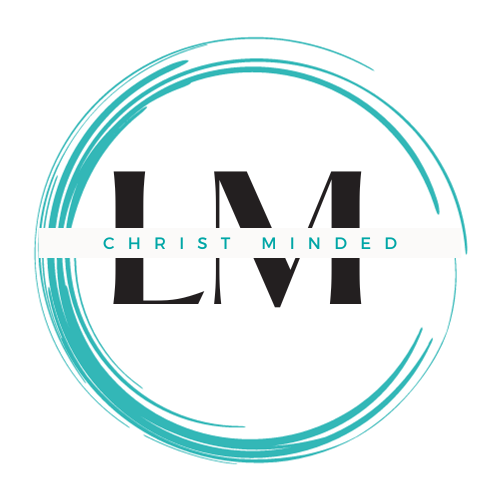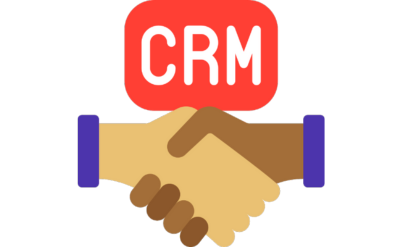Managing customer relationships efficiently is the lifeblood of any business, and that’s where Customer Relationship Management (CRM) systems come into play. These powerful tools can streamline your interactions with customers, boost productivity, and help you grow your small business.
TOP 10 BEST CRM SOFTWARES PLUS 11 GENIUS WAYS TO DISCOVER THE BEST ONE FOR YOU!
But with a plethora of CRM options available and more being developed daily, how do you choose the right one? I’ve divided this comprehensive guide into two parts. In the first part you’ll learn what CRM is and how to select the best option for you depending on your needs, preferences, or budgets. I’ll walk you through the step-by-step process of finding the perfect and best CRM software for your small business. In the second part, you’d also discover the top 10 recommended CRM softwares for SMEs and basically businesses of all sizes.
Without further ado, let’s dive into it.

Step-By-Step Process Of Finding The Perfect Crm For Your Small Business
Step 1: Assess Your Needs
Before diving into the world of CRMs, it’s essential to understand your business’s unique requirements. Begin by assessing your needs. What specific challenges are you facing in managing customer relationships? Are you looking to streamline your sales process, improve customer support, or enhance marketing efforts? Knowing your pain points and goals will guide your CRM selection.
Step 2: Define Your Budget
CRM solutions come in various price ranges, from free options to enterprise-level systems. But choosing one really depends on your pocket size hence, the need to determine your budget for CRM software, keeping in mind that the cost may include subscription fees, setup, and maintenance expenses. Also, setting a budget helps you narrow down your options to a selective few.
Step 3: Choose the Type of CRM
There are three primary types of CRMs:
1. Operational CRM: This kind focuses on automating and streamlining day-to-day operations such as sales, marketing, and customer service.
2. Analytical CRM: This analyzes customer data to provide valuable insights for decision-making and strategy development.
3. Collaborative CRM: Collaborative CRM enhances communication and collaboration among various departments to improve overall customer service.
Knowing this you can go ahead to select the type that aligns with your personal or business goals.
Step 4: Consider Integration
Your CRM should seamlessly integrate with your existing tools and software, such as email marketing platforms, accounting software, and e-commerce systems. This integration ensures smooth data flow and enhances efficiency.
Step 5: Research CRM Options
Now that you have a clear picture of your needs and budget, it’s time to research CRM options. Some popular choices for small businesses include:
HubSpot CRM : Known for its user-friendly interface and robust marketing tools.
Zoho CRM : Offers a variety of features at affordable prices, making it ideal for small businesses.
Salesforce : A powerful CRM with a wide range of customization options, suitable for businesses of all sizes.
Pipedrive : Specializes in sales-focused CRM solutions, making it a great choice for sales teams.
More on them below.
Step 6: Read Reviews and Seek Recommendations
Dig deeper by reading user reviews and seeking recommendations from industry peers. This step can provide valuable insights into the user experience and the pros and cons of each CRM system.
Step 7: Request Demos and Trials
Before making a final decision, request demos or free trials of the CRM systems you’re considering. This hands-on experience will help you assess ease of use, features, and whether the CRM aligns with your business processes.
Step 8: Evaluate Customer Support
Quality customer support is essential, especially when issues arise. Ensure that your chosen CRM provider offers responsive customer support, including email, chat, or phone assistance.
Step 9: Make Your Selection
After careful consideration and testing, it’s time to make your CRM selection. Choose the one that best aligns with your business goals, budget, and requirements.
Step 10: Implement and Train
Once you’ve made your selection, implement the CRM system and provide training to your team. A smooth transition is crucial to maximize the benefits of your CRM.
Step 11: Monitor and Adapt
Continuous monitoring and adaptation are key to successful CRM utilization. Regularly evaluate its effectiveness, gather feedback from your team, and make necessary adjustments to improve your customer relationships continually.
Empowering Your Small Business
A well-chosen CRM system can transform the way your small business manages customer relationships, leading to increased efficiency and growth. By following these steps and carefully considering your needs, budget, and available options, you’ll find the perfect CRM solution to propel your business to new heights.
To explore more insights on business growth, consider our blog post on Lead Generation Strategies 101: Unveiling the Path to Business Growth.
Finally we can move to the major part you’ve been waiting for.
READ MORE: Making Data-Driven Decisions for Growth: Top 10 Powerful Analytics Tools You Need for Your Business

TOP 10 BEST CRM SOFTWARES TO CHOOSE FROM ( WITH STRENGTHS AND WEAKNESSES ANALYZED)
Selecting the right Customer Relationship Management (CRM) software for your business is crucial. Here are ten of the best CRM software options, along with their strengths and weaknesses. Please note that the links provided will take you to the respective CRM software’s official websites, where you can find more detailed information about each option and explore their features. Also, Wisely Marketing does not earn any commission from this link or any purchase you make on the third party website.
1. Salesforce: Salesforce is a market leader with a robust feature set suitable for businesses of all sizes. Its extensive customization options and integration capabilities make it a top choice.
Strengths:
– Highly customizable with extensive features.
– Scalable for businesses of all sizes.
– Excellent third-party integrations.
Weaknesses:
– Can be complex for beginners.
– Costly, especially for small businesses.
2. HubSpot CRM: HubSpot is known for its user-friendly interface and seamless integration with marketing and sales tools. The availability of a free plan also makes it attractive for small businesses.
Strengths:
– User-friendly with a clean interface.
– Offers a free plan.
– Integrates seamlessly with HubSpot’s marketing and sales tools.
Weaknesses:
– Limited features compared to paid CRM solutions.
– Might not suit very large enterprises.
3. Zoho CRM: Zoho offers a comprehensive set of features at affordable prices, making it a strong contender for small and medium-sized businesses.
Strengths:
– Affordable pricing plans.
– Comprehensive feature set.
– Excellent mobile app.
Weaknesses:
– Some advanced features may require customization.
– Steeper learning curve for complete utilization.
4. Pipedrive: Pipedrive is designed with sales-focused teams in mind and is known for its ease of use and strong email integration.
Strengths:
– Ideal for sales-focused teams.
– Intuitive and easy to use.
– Strong email integration.
Weaknesses:
– Lacks some marketing automation features.
– Limited reporting capabilities.
5. Microsoft Dynamics 365: Microsoft’s CRM solution integrates seamlessly with other Microsoft tools and is highly customizable, making it suitable for enterprises.
Strengths:
– Seamlessly integrates with other Microsoft tools.
– Highly customizable.
– Suitable for enterprises.
Weaknesses:
– Expensive for small businesses.
– May require IT expertise for setup.
6. Freshsales: Freshsales offers a great balance between affordability and features (including AI). Its email tracking and analytics capabilities are particularly notable.
Strengths:
– Affordable with excellent features.
– User-friendly interface.
– Strong email tracking and analytics.
Weaknesses:
– May need additional integrations for certain functionalities.
– Limited third-party integrations.
7. Monday.com: While not a traditional CRM, Monday.com is included for its versatility and extensive customization options, which can suit various business needs.
Strengths:
– Versatile work operating system.
– Highly customizable for various use cases.
– Great for project management and team collaboration.
Weaknesses:
– CRM features are part of larger software, which may be overkill for some businesses.
– Pricing can be high for CRM-focused needs.
8. Bitrix24: Bitrix24 is known for its affordability, particularly its free plan, and its status as an all-in-one business suite with CRM functionality.
Strengths:
– Affordable with a free plan available.
– All-in-one business suite with CRM, project management, and collaboration tools.
– Great for small and medium-sized businesses.
Weaknesses:
– Free plan has limitations.
– May feel overwhelming with its extensive features.
9. Zendesk Sell (formerly Base): Formerly known as Base, Zendesk Sell offers a user-friendly interface and strong sales pipeline management capabilities.
Strengths:
– User-friendly interface.
– Excellent sales pipeline management.
– Strong reporting and analytics.
Weaknesses:
– Lacks marketing automation features.
– Integrations are not as extensive as some competitors.
10. Insightly: Insightly is known for its affordability, strong project management features, and scalability.
Strengths:
– Affordable pricing.
– Robust project management and CRM combination.
– Customizable and scalable.
Weaknesses:
– Limited marketing automation.
– Some users find it less intuitive compared to others.
Each of these CRM options has its unique strengths and weaknesses. The choice depends on your business’s specific needs, budget, and level of customization required. It’s advisable to take advantage of free trials or demos to find the one you’d prefer..
Finally, these CRM options were chosen to provide a diverse range of choices suitable for different business sizes and requirements. It’s important for businesses to evaluate each option in detail to find the CRM that aligns best with their specific needs and goals.
READ MORE: 7 Best Ways To Market Your Business On Your Own
Are there anyone you think we’ve left out, and worthy of being in your top ten list?
Note: During this process, you might still be in need of a job: Try Writing Jobs-Great pay





